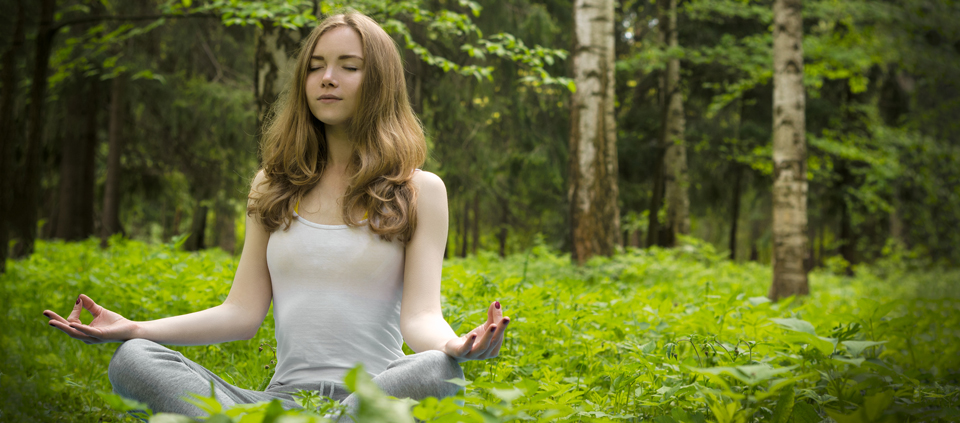Portland Helmich
“You’re so lucky,” my mother reminds me whenever I visit. “You have such beautiful, thick hair, and mine’s like cotton candy!” With her thin, straw-like strands, my mother has always felt lacking in the hair department, as her “crowning glory” hardly resembles a crown.
It’s true. I did get lucky in the hair department. From the top of my head to below my shoulders, I sport a voluminous, dark mane. On good days, it enhances how I feel about myself. On bad days, it can cause me to feel older, like when I notice the buildup of gray that can turn my glorious tresses into a frizzy mess.
What does your crowning glory say about you?
“Hair helps define who we are,” says Ayurvedic Health Counselor Cat Pacini. “It can be a personal expression of our nature and personality, and its health can give us insight into the health of our whole body.”
Cat says that, from an Ayurvedic perspective, early hair loss and premature graying can be signs of excess pitta in the body. Excess vata can dry hair out, while excess kapha can cause hair to become oily.
Pitta, vata, and kapha are the three energetic constitutions that form the basis of Ayurveda, a comprehensive form of medicine practiced in ancient India that continues to be practiced today. Ayurvedic healthcare prescriptions come out of nature rather than a conventional pharmacy. “Ayurveda only promotes putting things on the body that you could eat,” says Cat. “Our skin is the body’s largest sense organ. It takes things in.”
With that in mind, here are some Ayurvedic prescriptions to address common hair complaints.
Dry Hair
In the summer and/or in warmer climates, take a dime-sized amount of coconut oil, which has natural cooling properties, and run it through your hair to help to moisten it and reduce fly-away strands. In the winter and/or in colder climates, use the same amount of sesame oil, which has natural warming properties.
Oily Hair
“Sometimes people with oily hair choose shampoos that are more drying,” Cat notes, “but they can strip the hair and scalp of natural oils, and then the oil glands will overproduce to compensate.” Cat says it’s important not to wash oily hair too often and to look for shampoos containing the herb neem, which helps to balance the pitta and kapha doshas.
“Oily scalps can still benefit from a massage with olive or mustard oil,” says Cat, “because these oils have purifying and warming properties. They help to balance oil production and not add to it.” Cat adds that it’s important for people with oily hair to refrain from eating excessively heavy and oily foods.
Thinning Hair and Graying Hair
To promote healthy hair growth and reduce premature graying, Cat recommends bhringaraj oil. The herb bhringaraj is purported to rejuvenate the hair and scalp and is known as the “ruler of hair.” Bhringaraj oil contains a combination of extracts from the bhringaraj plant (Eclipta alba, which grows in India, China, Thailand, and Brazil) in a sesame or coconut oil base. It’s also used to treat certain health problems, such as difficulty sleeping.
At night, put a quarter-size amount of the oil on your fingers and massage it into your scalp when your hair is dry (you can also massage it into your hair). Then sleep on it. The next morning, first shampoo your hair without water and then rinse the oil out. You might need to rinse and repeat a few times.











